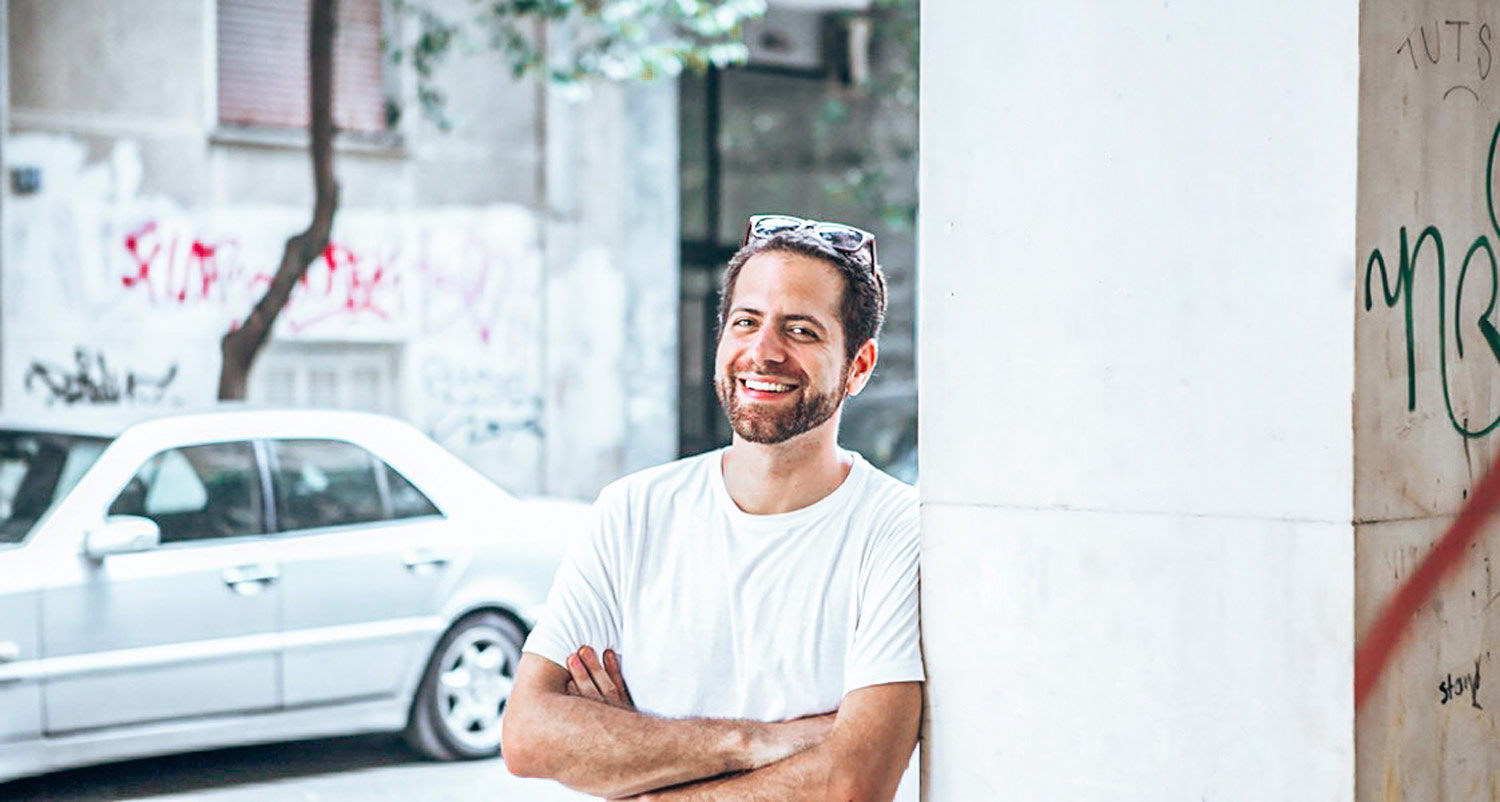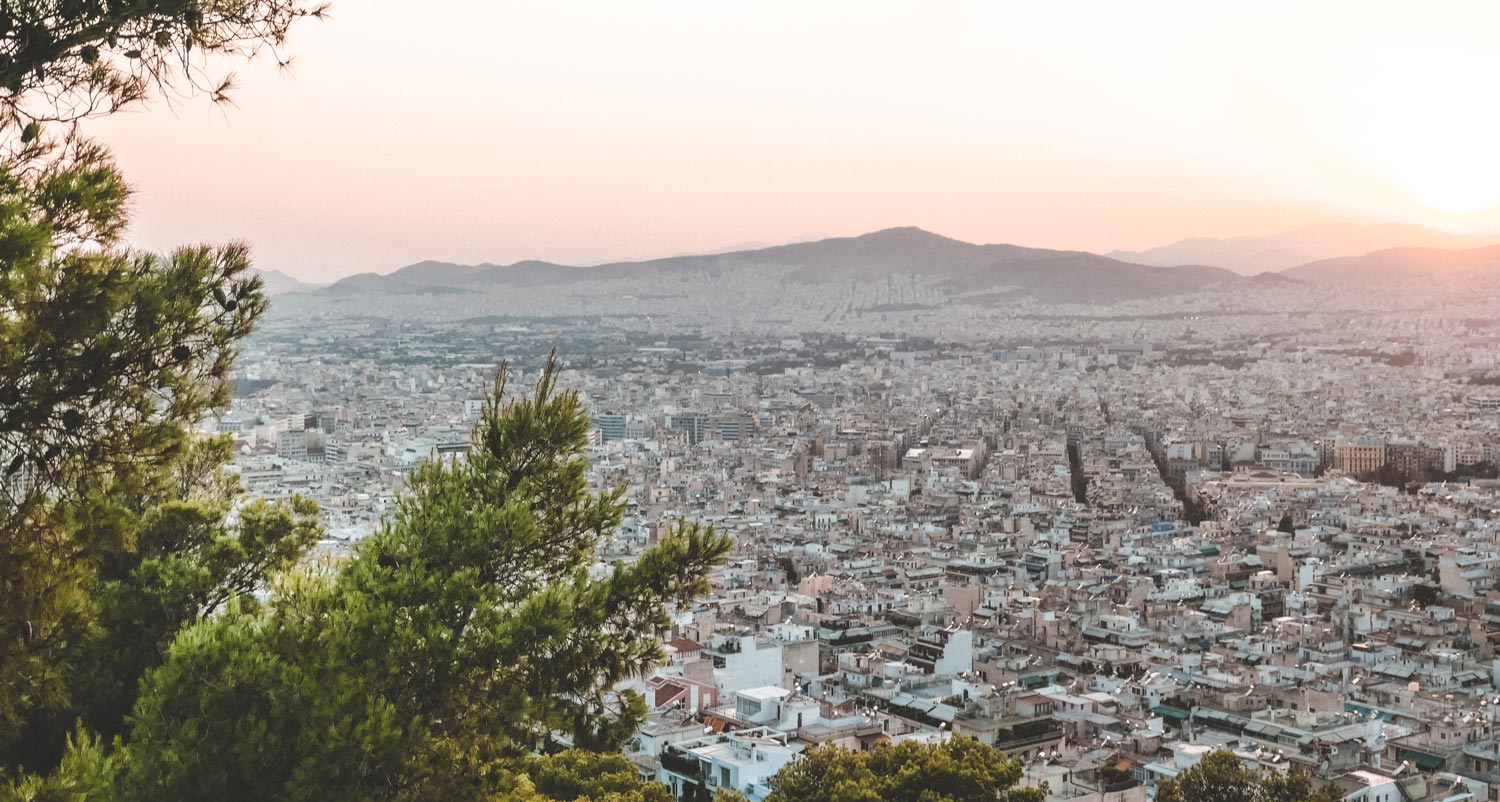
Athens Crisis told by the Architect Timoklia Tsagari
During our stay in Athens we had the chance to interview our Travala’s apartment owner, the architect Timoklia Tsagari. In addition to being a beautiful and powerful woman, she is an independent architect. In this interview we asked her how she faced the crisis that affected Greece in 2008 and which were her solutions to overcome that thought period. Understanding this dark chapter of the Greek history, we are sure you’ll be able to understand even more today’s Athens. If you want to organaize your trip to Greece, check out our adventures and experiences.
How was Athens before the crisis?
Athens was the perfect city: there was a lot of work and projects, especially for entrepreneurs. The real crisis didn’t start in 2008, no. That year things were still good, I was having projects, but I knew the crisis was there. Then, in 2010 and 2011 we really understood the crisis was there and didn’t want to pass any soon. My husband lost his job, I didn’t have any more projects, and at the same time we had more taxes because of the debt but no money to pay them. Politics tried to save the country, but not the people. A lot of people gave up and others kept fighting this monster. My sister had to sell an apartment of 90.000€ at the price of 20.000€ to pay her debts, otherwise the bank would have taken everything. At that point, I realized that Athens and Greece were falling down. And in this tragedy, Greece was described as the irresponsible son of Europe, but that wasn’t true. When foreign investors sold all their actions, Greek banks started having debts and Greek economy started to collapse. At that moment, the banks did everything to save themselves impoverishing Greeks. That’s how it went.
How was your personal economic situation?
I had a nice economic situation. My husband gained a good salary, I had a lot of architectural projects and two employees, and my daughter was attending a private school. My business was so good that I even bought my office (later transformed in the Airbnb where we spent two months). For sure, a thing I had was clients: I was collaborating with people in Paris, London, Cyprus and the whole Greece. I was 48 years old when the crisis started and I was at the top of my career. After the beginning of the crisis, I had to dismiss one employee and a year later the second one as well. At that moment my economic situation started to change for the worst.
Which were the first signs that made you understand that the crisis arrived in Athens?
Well, Athens didn’t change only because of the crisis. In fact, at the same time immigration from Africa, Syria and Middle East started. The combination of the crisis and migrants created a deadly mix for Greece and Athens. All the small shops closed, everybody lost their job. The streets were left abandoned. Even in Kolonaki and Plaka stores started to close.
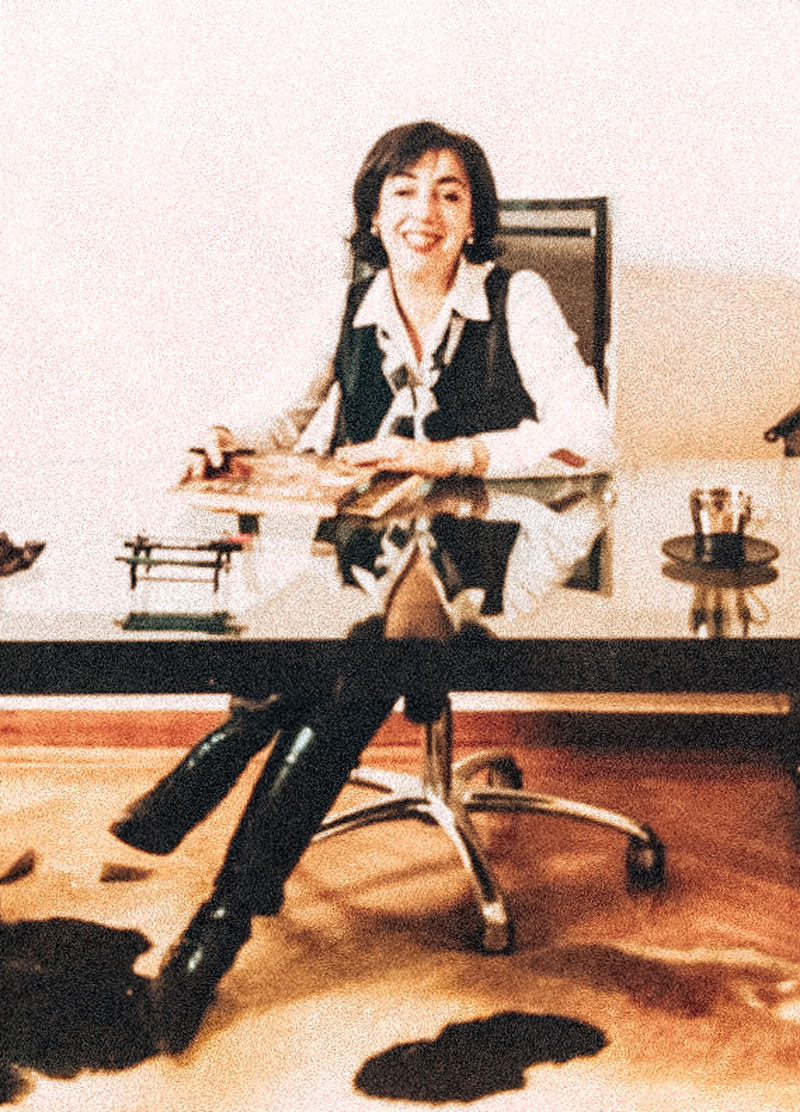
“Timoklia At Her Office Before The Crisis”
All the rich Greek people left the city center of Athens and went to live in the suburbs. Doing this, a lot of nice neighborhoods of Athens started becoming ghettos, especially Kypseli. Slowly, I started not recognizing anymore the city. At the same time tourism exploded and a lot of foreigner investors bought apartments in Omonia, Monastiraki and they made Airbnb studios. A part of Greeks decided to stay in the center of Athens to protect it, but with immigrants on one side and tourists on the other, they became the minority.
How did you fight against the crisis?
I immediately understood it wasn’t a passing crisis. So, my first goal was to survive. I found Airbnb (a rarity in 2011) and I started renting my office, which gave me a small salary. My husband found immediately another well-paid job and he came back to his first company two years later. Even if all the extras were banned, we still had the money to pay bills and food. Even my daughter found a small job at 18 years old to help a bit. Let’s say that we didn’t wait, we reacted. A thing that saved us was the houses we had in Athens and in Greece. Airbnb at that time was a sure option: it was definitely more paid than renting to a local. At the same time I was renting my home in the island of Zakynthos to an Englishman and another apartment in Athens to a Pakistani. All this permitted us to survive the crisis. At the same time, I started doing social actions to help my city. I was doing activities and initiatives in the artistic and architectural fields, but even just cleaning and repairing things. It was my city and I needed to protect it!
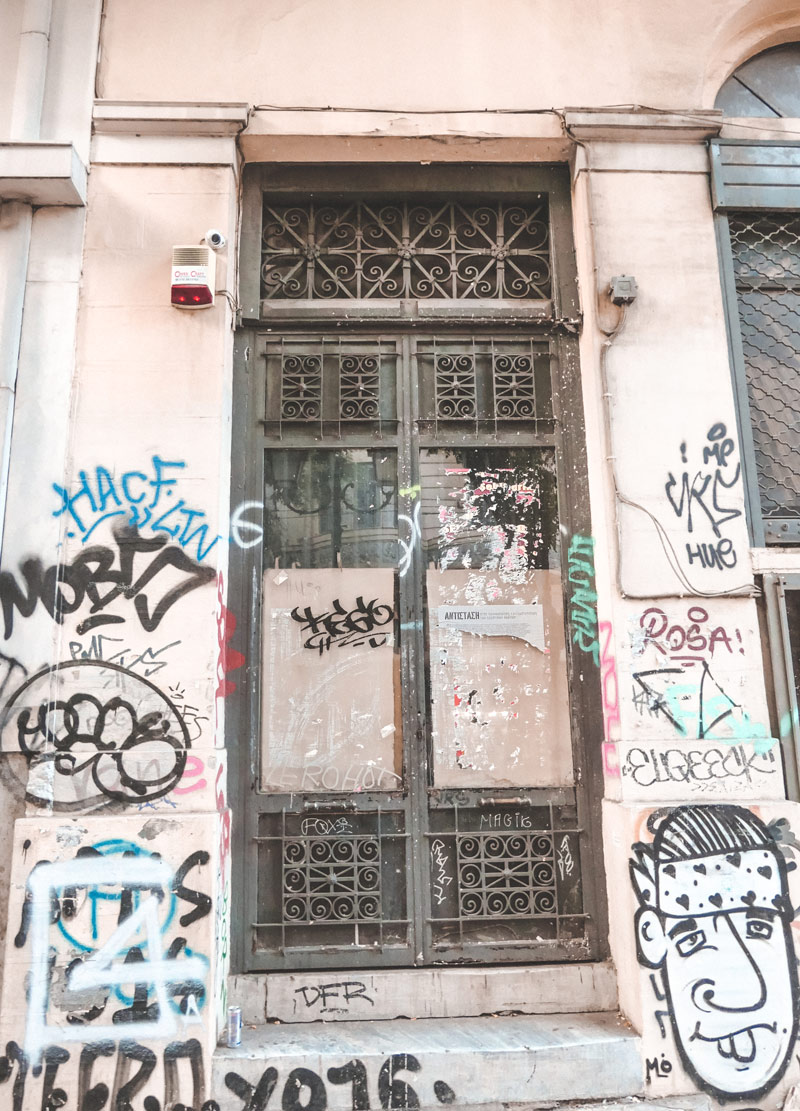
“The Neighborhood Of Exarchia”
How crisis changed Athenians and Athens?
The real victim of this crisis was the middle class, and we are talking about the 80% of the population. For them it was very hard psychologically: they lost their job and their dignity. Poor people were already poor before the crisis, so their situation didn’t change drastically. Same for the rich. In that precise moment, homeless started to grow in Athens. I have a friend that was a graphic designer before the crisis. He is now not living on the streets only because he owned an apartment. He is still living there nowadays, more than 10 years after the crisis, in 35m² without electricity and hot water. He didn’t manage to overcome psychologically all this. At that time my husband was going around Athens with his bike to talk with homeless people. He was giving them some food, money. The thing they missed the most was talking with people. They were invisible to a society in crisis.
If you want to have a clearer idea of what happened after the crisis, we really advise you this cultural guide of Athens.
Which are your impressions about today's Athens?
Athens became a really touristic city, but I don’t mind it at all. I’m pretty happy that neighborhood like Monastiraki and Plaka are really international. I see my city living again.
Even if a lot of structures in the center are owned by Asiatic and Israelis who invested a lot during the crisis, they saved in a way Greek economy. Of course I would prefer Greeks to have the opportunity to invest, but I’m still happy to see Athens alive.
How do you see the future of Athens in 10 years?
I’m optimistic. I think that the future of Athens will be really nice. Tourism will be a strong base of Athens economy because it’s a timeless city and it’s still very cheap. Regarding the suburbs around Athens, I don’t know how the situation will evolve, but I trust in smart investors. I think that some parts of the city will become ghettos and others will become chic and modern. We’ll see what the future of Athens has in store for us, but I love my city and I have hope in it.
We hope you liked this small talk with Timmi. If you want to understand even better how Greek crisis was, we recommend you to watch the film “Adults in the Room” by Costa Gavras. Another book that can help you understanding Greece is this complete guide. If you want to share your vision and thoughts about the Greek crisis, we would be happy to read your comment below!
If you liked it, PIN IT!
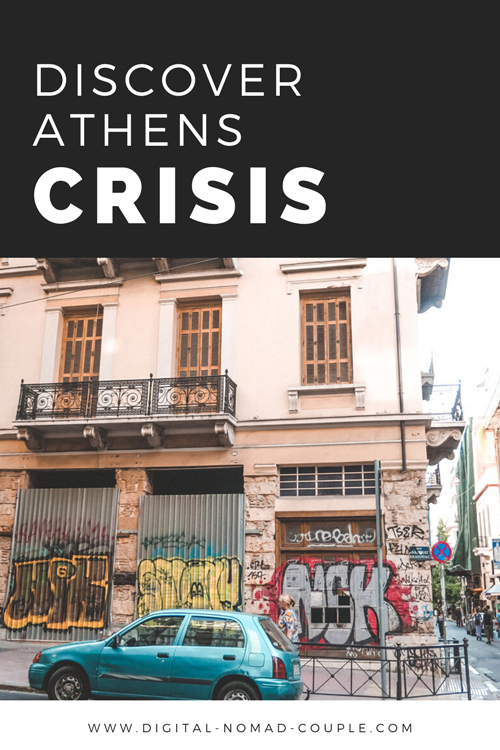
Give us some love!
5Updated on: October 15, 2022



